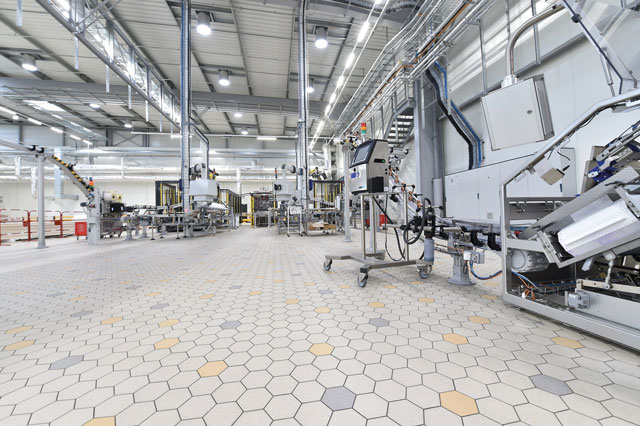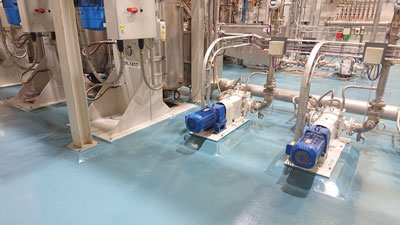No matter what industry sector you work in, the same principles apply to selecting a suitable plant floor, says David Priest, national sales manager at Kemtile.

For sectors from aerospace to chemical, environmental to production, industrial flooring must meet a wide range of performance and legislative requirements. But whatever the sector, size or scale, the same “first flooring principles” apply to every manufacturing and processing site. Before investing in flooring for your plant, here are some key specification considerations.
Consider all project elements from the outset
When considering a new floor, make sure all aspects of the job are taken into account and tackled at the start of the project. This should include civils work – which usually involves drainage channels and connections – and surface drainage.
Check that the proposed flooring specification will meet all the demands imposed on it. For example, can it support heavy machinery? Does it need to be perfectly flat so that machines can be calibrated? Is it able to withstand heavy traffic such as forklift trucks? Is slip resistance sufficient for health and safety? Is it resistant to oil and chemicals? Is it easy to clean and maintain?
Kemtile supplies and installs bespoke industrial flooring in both resin and ceramic tiling, which it teams with stainless steel drainage systems, kerbs and wall systems and protection. As one of the few companies to offer such a breadth of solutions, it is well placed to advise customers on the solution that will be most appropriate for their needs. This is sometimes a combination of many elements to meet specific performance and cost requirements and provide excellent service life.

Ensure efficiency
Flooring can have a significant impact on how efficiently production runs. A damaged or uneven surface can prevent forklift trucks and pallet trucks from moving materials around the factory efficiently. If the floor isn’t robust enough, such traffic will damage it further and the issues will be exacerbated – eventually requiring repairs, which often involves shutdown and loss of production and therefore profitability.
A number of repair solutions are available with quick installation and drying time so that production can resume as soon as possible. But it’s always better to consider flooring fully at the start of the job. It’s much more straightforward and cost-effective to install a flooring system in an empty site.
Health and Safety
According to HSE statistics, slips, trips and falls continue to be a major cause of injuries in the workplace – resulting in a huge rise in personal injury claims in recent years.
The health and safety of workers should be the top priority of any employer and flooring has an important role to play in keeping accidents to a minimum.
The correct drainage and floor covering will avoid liquids pooling on the floor and provide appropriate slip-resistance to help to reduce accidents. And we always make sure that for surfaces that are prone to spillages, slip resistance is much higher than in dry areas.
Clean, hard-wearing and resilient
All manufacturers and processors – whatever the sector – must adhere to the highest hygiene standards. This means that floors must be sterile and able to withstand the high temperatures and harsh chemicals used during everyday cleaning processes. In wet processing areas, pooling of waste liquids can result in microbacterial growth, so adequate drainage is important. Kemtile recommends that hot liquids and chemicals are discharged directly into the drainage system rather than run over the floor finish.
Process suitability
What does your manufacturing process involve? Will flooring be subject to heavy machinery and vehicle traffic? And does it need to meet specific standards and create a particular type of environment?
Customers in the pharmaceutical, automotive, engineering and food and beverage industries have widely varying flooring requirements. Making the wrong call can result in faulty or contaminated goods and loss of revenue and profits – not to mention damage to your reputation – so make sure that your flooring system partner has the right experience and expertise for your job.
Further information: www.kemtile.co.uk, call 01925 763045 or email enquiries@kemtile.co.uk.
Kemtile offers RIBA approved CPD for specifiers in the engineering and manufacturing sector at www.ribaproductselector.com/stonhard-uk-ltd/15838/cpd.aspx

